Photographs: Courtesy, mclaren.com
The McLaren Group, based at the McLaren Technology Centre in Woking, Surrey, England, is known for producing supercars.
Let's take a look at McLaren MP4-12C Spider, one of the rarest cars in the world. According to the company, only 600 are produced per year and each car costs $265,750.
Click NEXT to see more...
Amazing images of supercar McLaren Spider
Photographs: Courtesy, mclaren.com
Bruce McLaren started the Woking-based McLaren Formula One team in 1966. Teddy Mayer took over direction of the group following Bruce McLaren's death while testing a Can-am series car in 1970.
...
Amazing images of supercar McLaren Spider
Photographs: Courtesy, mclaren.com
Mayer subsequently lead the McLaren to their first World Constructors' Championship in 1974 with Brazilian driver Emerson Fittipaldi, who also won the World Drivers' Championship that year.
...
Amazing images of supercar McLaren Spider
Photographs: Courtesy, mclaren.com
In 1992 McLaren began producing its first road car, the McLaren F1, which had many similarities to its F1 car. In total 106 were produced from 1992-1998, and even though it has been out of production for 11 years, there are only few cars faster than the F1.
...
Amazing images of supercar McLaren Spider
Photographs: Courtesy, mclaren.com
Among those that are faster are the Koenigsegg CCR, Bugatti Veyron and SSC Ultimate Aero and the Bugatti Veyron Super Sport.
...
Amazing images of supercar McLaren Spider
Photographs: Courtesy, mclaren.com
In September 2009, McLaren announced the successor of the McLaren F1 which was to be the McLaren MP4-12C. Dennis said that parting ways with Mercedes was a "win-win situation for both sides".
...
Amazing images of supercar McLaren Spider
Photographs: Courtesy, mclaren.com
McLaren also produced the Mercedes-Benz SLR McLaren with Mercedes as a joint project. Mercedes presently owns 11 per cent of the group as 29 per cent has been sold back to the group.
...
Amazing images of supercar McLaren Spider
Photographs: Courtesy, mclaren.com
The McLaren MP4-12C is a sports car designed and manufactured by McLaren Automotive.
...
Amazing images of supercar McLaren Spider
Photographs: Courtesy, mclaren.com
It is the first production car wholly designed and built by McLaren since the McLaren F1.
...
Amazing images of supercar McLaren Spider
Photographs: Courtesy, mclaren.com
The car's final design was unveiled on September 8, 2009, and was launched in 2011.
...
Amazing images of supercar McLaren Spider
Photographs: Courtesy, mclaren.com
The MP4-12C features a carbon fibre composite chassis, and is powered by a mid-mounted McLaren M838T 3.8-litre V8, twin-turbo engine developing about 592 bhp (441 kW; 600 PS) and around 443 lb ft (601 N m) of torque.
...
Amazing images of supercar McLaren Spider
Photographs: Courtesy, mclaren.com
The car makes use of Formula 1-sourced technologies such as "brake steer", where the inside rear wheel is braked during fast cornering to reduce understeer. Power is transmitted to the wheels through a 7-speed Seamless Shift dual-clutch gearbox.
...
Amazing images of supercar McLaren Spider
Photographs: Courtesy, mclaren.com
In 2008, McLaren hired Frank Stephenson as design director for their reborn production car project. As with the McLaren F1, carbon fibre is used extensively in the vehicle to minimise weight. The MP4-12C weighs 1,301 kg dry.
...
Amazing images of supercar McLaren Spider
Photographs: Courtesy, mclaren.com
The chassis is based around a F1 style one-piece carbon fibre tub, called the Carbon MonoCell, weighing only 80kg. The MonoCell is made in a single pressing by using a set of patented processes, using Bi-Axial and Tri-Axial carbon fibre multiaxial fabrics produced by Formax UK Ltd. with the MonoCell manufactured by Carbo Tech in Salzburg, Austria.
...
Amazing images of supercar McLaren Spider
Photographs: Courtesy, mclaren.com
This has reduced the time required to produce a MonoCell from 3,000 hours for the F1 and 500 hours for the Mercedes-Benz SLR McLaren, to four hours for the MP4-12C.
The car has a conventional two side-by-side seating arrangement, unlike its predecessor the McLaren F1, which featured an irregular three seat formation (front center, two behind either side).
...
Amazing images of supercar McLaren Spider
Photographs: Courtesy, mclaren.com
To make up for this, however, the car's central console is narrower than in other cars, seating the driver closer to the center. Interior trim and materials can be specified in asymmetric configuration - known as "Driver Zone".
...
Amazing images of supercar McLaren Spider
Photographs: Courtesy, mclaren.com
The car is powered by the M838T 3.8 litre twin-turbo V8 engine, designed and developed by McLaren in partnership with Ricardo.
...
Amazing images of supercar McLaren Spider
Photographs: Courtesy, mclaren.com
The design of the engine was based on the Nissan VRH35 racing engine used in Le Mans in 1998. However, other than the 93 mm bore, little of that engine remains in the M838T.
...
Amazing images of supercar McLaren Spider
Photographs: Courtesy, mclaren.com
It produces 592 bhp (441 kW; 600 PS) and 443 lb ft (601 N m) of torque. It has a redline of 8,500 rpm, with 80 per cent of torque available at just 2,000 rpm.
...
Amazing images of supercar McLaren Spider
Photographs: Courtesy, mclaren.com
The name of the new McLaren sports car is MP4-12C. 'MP4' has been the chassis designation for all McLaren Formula 1 cars since 1981. Since 1997, 'MP4' has stood for McLaren Project 4 (from 1981 to 1996, when McLaren's title sponsor was Marlboro, the 'M' stood for this), resulting from the merger of Ron Dennis' Project 4 organisation with McLaren.
...
Amazing images of supercar McLaren Spider
Photographs: Courtesy, mclaren.com
The '12' refers to McLaren's internal Vehicle Performance Index through which it rates key performance criteria both for competitors and for its own cars. The criteria combine power, weight, emissions, and aerodynamic efficiency.
The coalition of all these values delivers an overall performance index that has been used as a benchmark throughout the car's development. The 'C' refers to Carbon, highlighting the application of carbon fibre technology to the future range of McLaren sports cars.
...
Amazing images of supercar McLaren Spider
Photographs: Courtesy, mclaren.com
MP4-12C shares its name with the MP4/12 Formula 1 car that raced in the 1997 season. This car featured a second brake pedal discovered by photographers to counter understeer on the exit of the corners by selecting the inside rear wheel, similar to the computer controlled "brake steer" system of the MP4-12C.

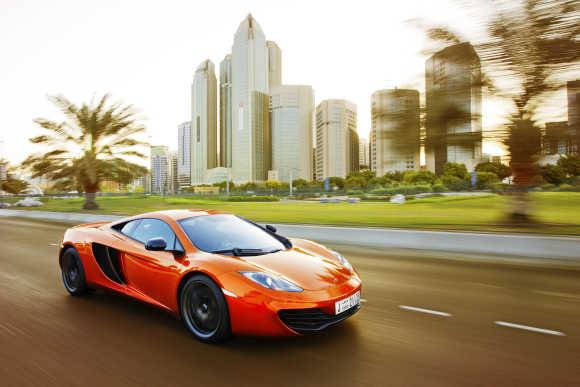
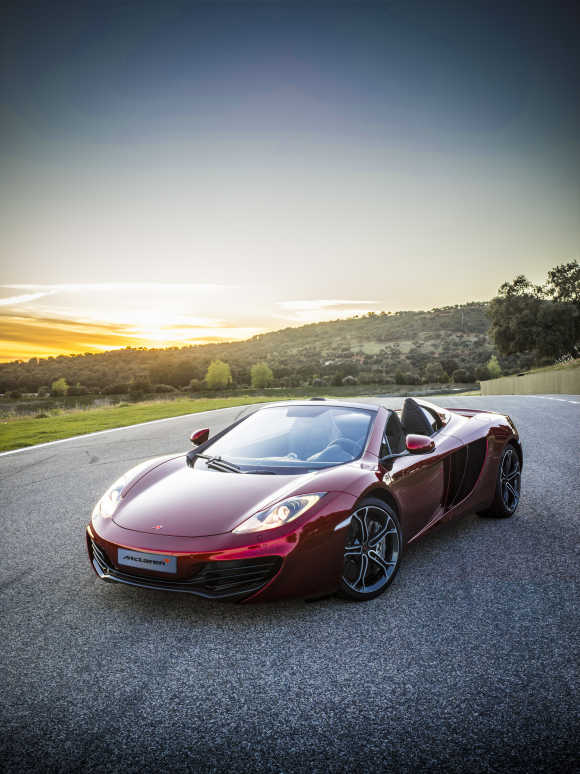
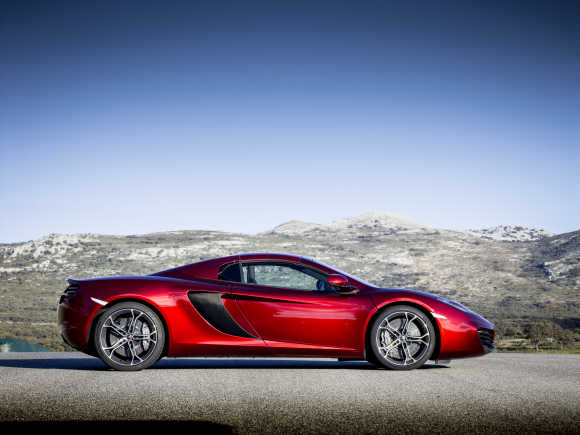

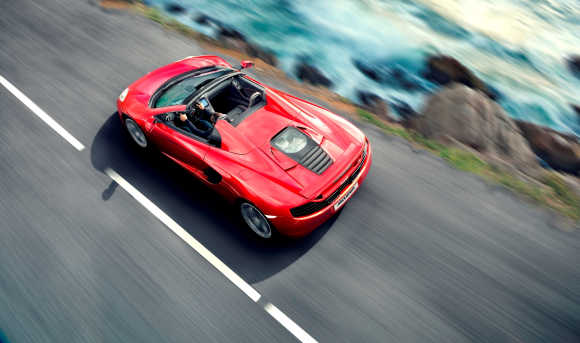
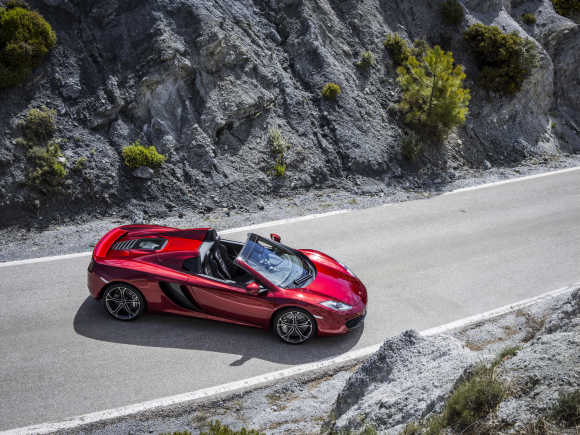
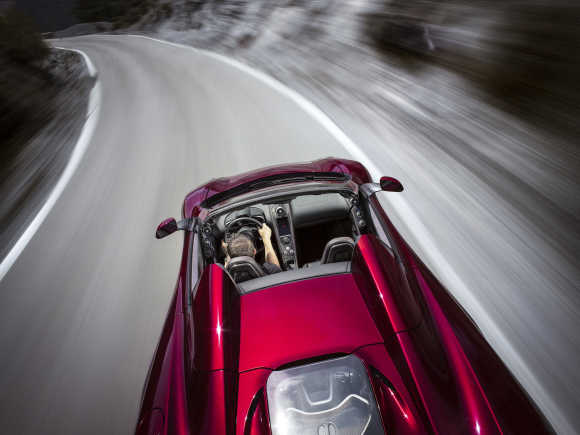
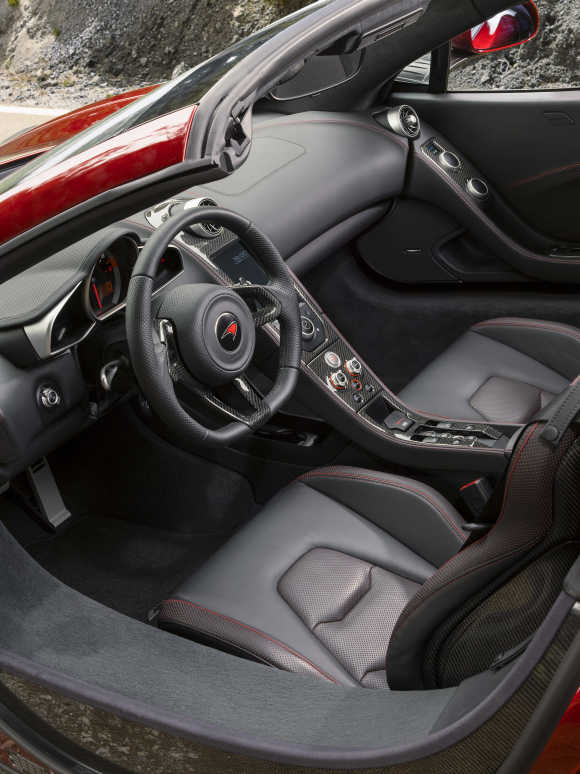

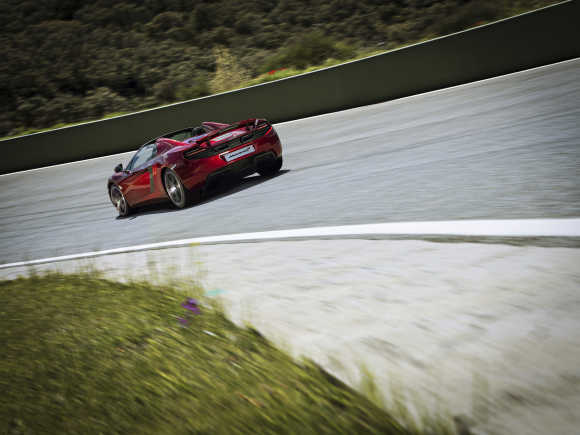
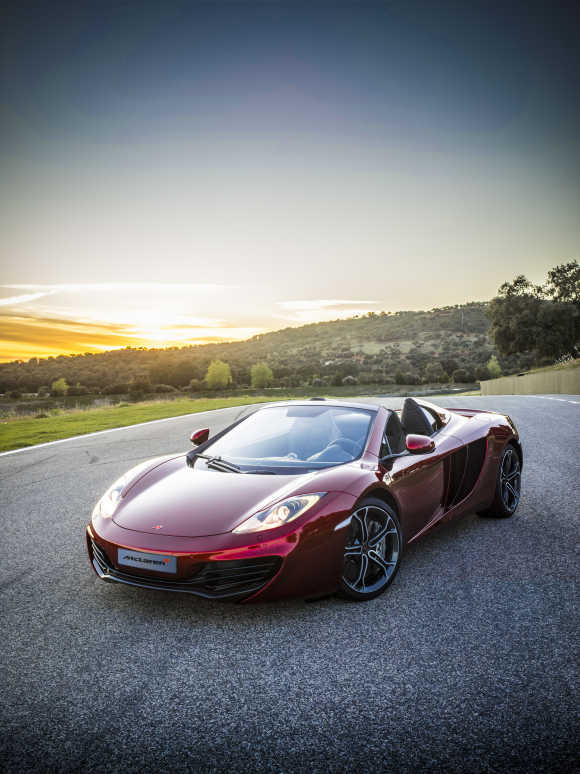
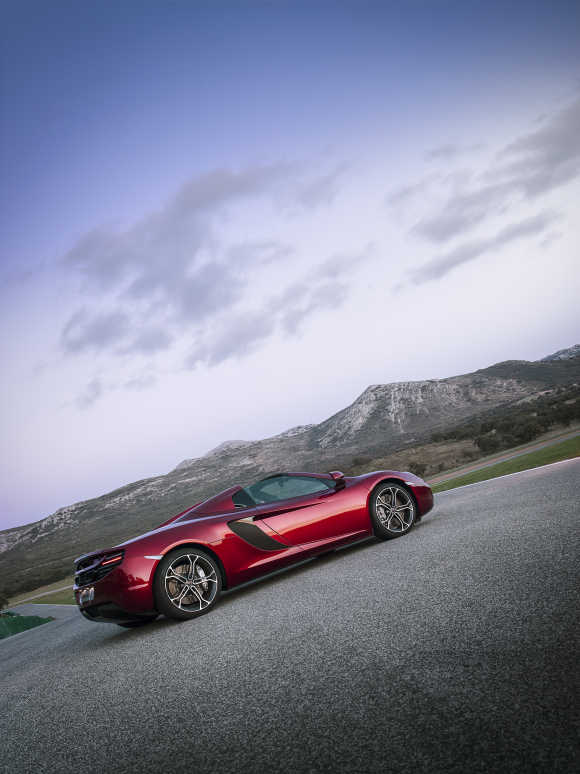


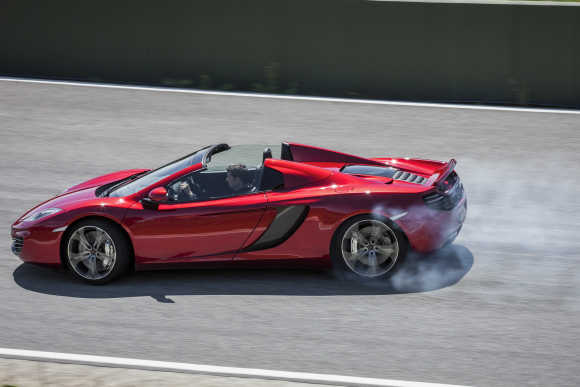
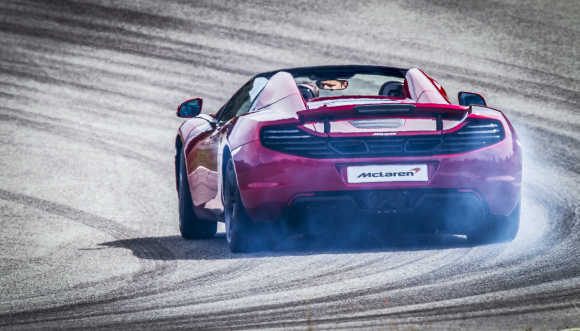
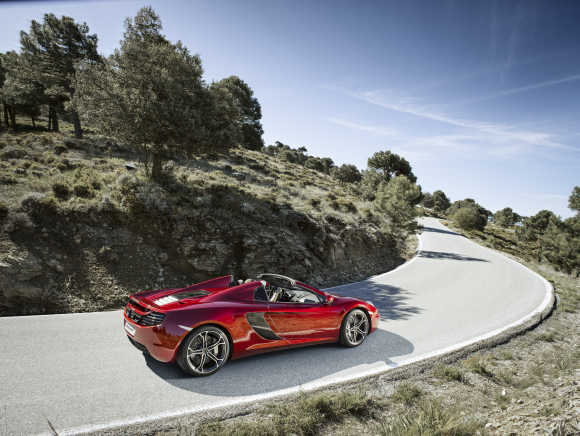
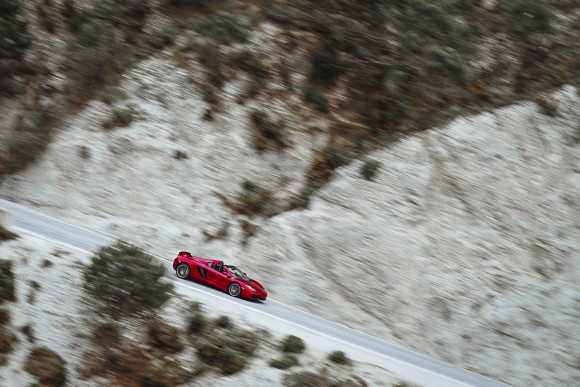
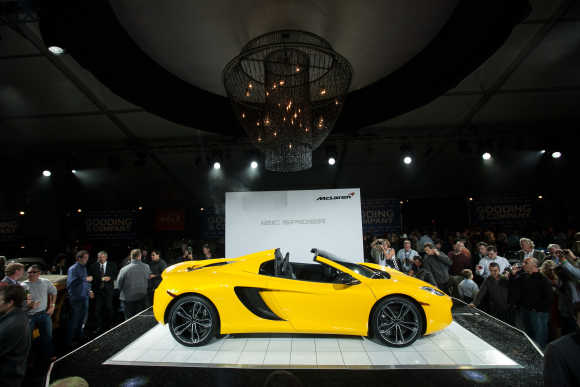
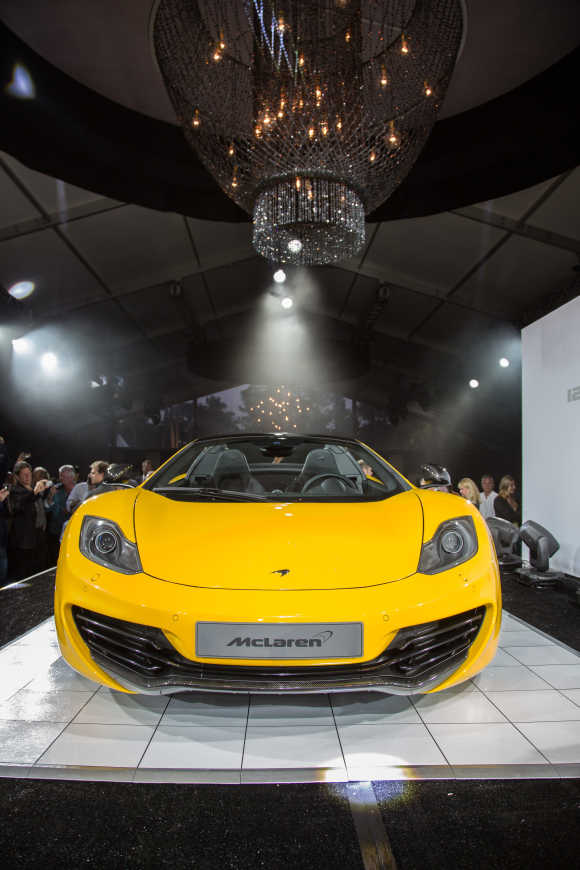
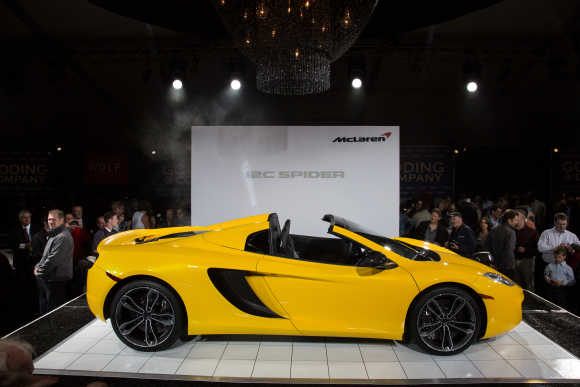
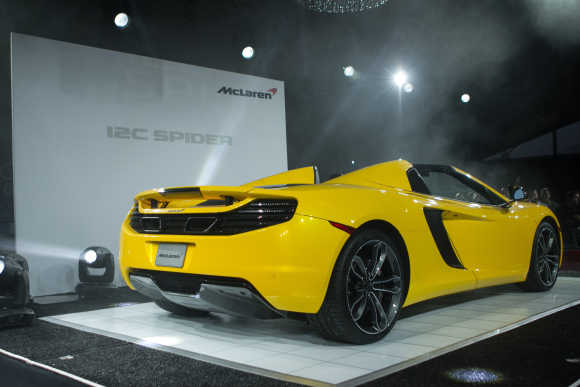
article